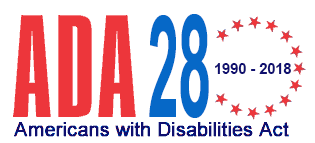Why Access Matters

Why Access Matters
This year marks the 29th anniversary of the Americans with Disabilities Act (ADA). It's also the 20th anniversary of the US Supreme Court’s decision in Olmstead v. L.C.
Why Access Matters

This year marks the 29th anniversary of the Americans with Disabilities Act (ADA). It's also the 20th anniversary of the US Supreme Court’s decision in Olmstead v. L.C. The Olmstead decision, an important ADA decision, requires states to eliminate segregation of persons with disabilities and ensure they can live and receive services in their communities. This means people have the right to live independently in the community with the supports they need. Access to the community is critical so people are part of society and, thanks to the Olmstead decision, it is the law.
Whether it’s a movie theatre, a store or a doctor’s office, people with disabilities have the same right to go there. The ADA and California’s Unruh Civil Rights Act outline the rights. Legislators passed these laws for a reason. They wanted people with people with disabilities treated equally. They wanted to remove barriers that keep people from being part of our society. Access is not a privilege. It's a right. However, many still fail to follow the law and lawsuits follow. We need to shift our thinking. We need to affirmatively treat people with disabilities as equals in our society and implement access policies that include people. Doing this means, we value diversity and want to create a society all can enjoy.

The Everyday Barriers for People with Disabilities
People who don't have a disability take for granted how easy it is to access some of the most basic areas around the community. Evelyn Abouhassan shows some of the difficulties she faces and why access matters to her.
MAKE A DONATION
Please give. To the best of your ability.









